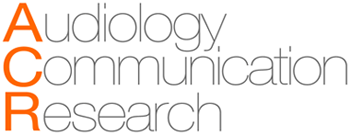Purpose
To perform a descriptive analysis of the performance of patients referred to a public educational institution to take part in the assessment of auditory processing and to correlate the assessment findings to the variables of age and hearing complaints, also to correlate results to behavioral and electrophysiological assessments.
Methods
The study included 159 individuals that were referred to the public health system to take part in an assessment of auditory processing. All participants underwent pure-tone audiometry, acoustic immittance measures, behavioral tests of auditory processing, and electrophysiological hearing assessment.
Results
The main complaint was learning disability and the tests that presented higher prevalence of abnormal results were temporal processing and dichotic listening tests. In all electrophysiological tests the number of normal results was higher than the altered ones. The proportion of normal and abnormal individuals in behavioral and electrophysiological tests did not differ in relation to gender. There was weak correlation between auditory closure and right ear middle latency responses; between left ear middle latency responses and total middle latency responses; among temporal ordering and electrode effect and P300; between temporal processing and right ear middle latency responses; between dichotic listening and P300 and also between binaural interaction and right and left ears acoustic reflexes.
Conclusion
The most frequent complaint among participants of this study was learning disability. Temporal processing and dichotic listening skills showed higher prevalence of alteration in the assessment. Most participants were referred to assessment of auditory processing by the speech-language pathologist. Correlation between behavioral and electrophysiological assessments was weak.
Speech; language and hearing sciences; Hearing; Auditory perception; Auditory perceptual disorders; Evoked potentials; Auditory; Hearing tests

